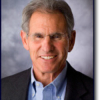Jon Kabat-Zinn

Jon Kabat-Zinn
Jon Kabat-Zinnis Professor of Medicine Emeritus and creator of the Stress Reduction Clinic and the Center for Mindfulness in Medicine, Health Care, and Society at the University of Massachusetts Medical School. Kabat-Zinn was a student of Buddhist teachers such as Thich Nhat Hanh and Zen Master Seung Sahn and a founding member of Cambridge Zen Center. His practice of yoga and studies with Buddhist teachers led him to integrate their teachings with those of science. He teaches mindfulness, which he...
NationalityAmerican
ProfessionEducator
Date of Birth5 June 1944
CountryUnited States of America
Mindfulness is about being fully awake in our lives. It is about perceiving the exquisite vividness of each moment. We also gain immediate access to our own powerful inner resources for insight, transformation, and healing.
The only time you ever have in which to learn anything or see anything or feel anything, or express any feeling or emotion, or respond to an event, or grow, or heal, is this moment, because this is the only moment any of us ever gets. You're only here now; you're only alive in this moment.
Generosity is another quality which, like patience, letting go, non-judging, and trust, provides a solid foundation for mindfulness practice. You might experiment with using the cultivation of generosity as a vehicle for deep self-observation and inquiry as well as an exercise in giving. A good place to start is with yourself. See if you can give yourself gifts that may be true blessings, such as self-acceptance, or some time each day with no purpose. Practice feeling deserving enough to accept these gifts without obligation-to simply receive from yourself, and from the universe.
Most of the time, if you're not really paying attention, you're someplace else. So your child might say, "Daddy, I want this," and you might say, "Just a minute, I'm busy." Now that's no big deal-we all get busy, and kids frequently ask for attention. But over your child's entire youth, you may have an enormous number of such moments to be really, fully present, but because you thought you were busy, you didn't see the opportunities these moments presented. . . . People carry around an enormous amount of grief because they missed the little things.
Arriving someplace more desirable at some future time is an illusion. This is it.
It is remarkable how liberating it feels to be able to see that your thoughts are just thoughts and that they are not 'you' or 'reality.' For instance, if you have the thought that you have to get a certain number of things done today and you don't recognize it as a thought but act as if it's the 'the truth,' then you have created a reality in that moment in which you really believe that those things must all be done today.
You are whole and also part of larger and larger circles of wholeness you many not even know about. You are never alone. And you already belong. You belong to humanity. You belong to life. You belong to this moment, this breath.
Patience is a form of wisdom. It demonstrates that we understand and accept the fact that sometimes things must unfold in their own time.
Practice sharing the fullness of your being, your best self, your enthusiasm, your vitality, your spirit, your trust, your openness, above all, your presence. Share it with yourself, with your family, with the world.
No one can listen to your body for you... To grow and heal, you have to take responsibility for listening to it yourself.
The awareness is not part of the darkness or the pain; it holds the pain, and knows it, so it has to be more fundamental, and closer to what is healthy and strong and golden within you.
One way to look at meditation is as a kind of intrapsychic technology that's been developed over thousands of years by traditions that know a lot about the mind/body connection.
When you have children, you realize how easy it is to not see them fully, and perhaps miss all those early years. If you are not careful, you can be too absorbed in work, and they will be only too happy to tell you about it later. Being a parent is one of greatest mindfulness practices of all.
Dying without actually fully living, without waking up to our lives while we have the chance, is an ongoing and significant risk.